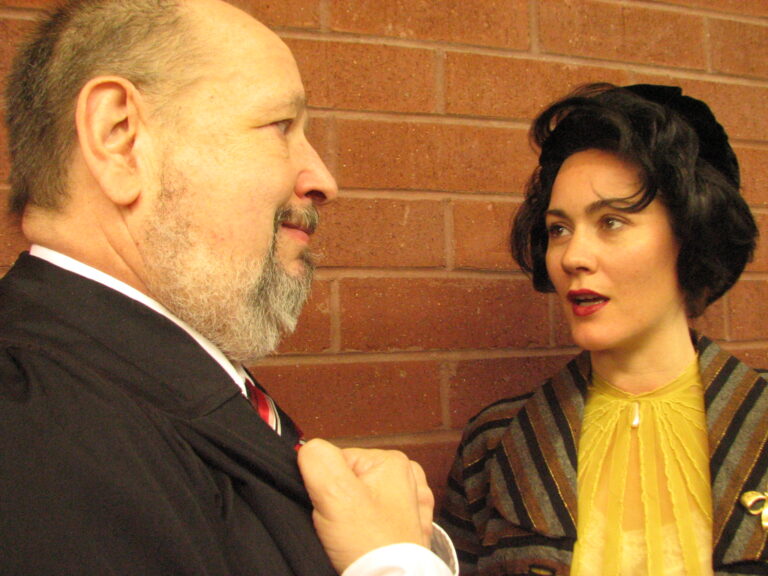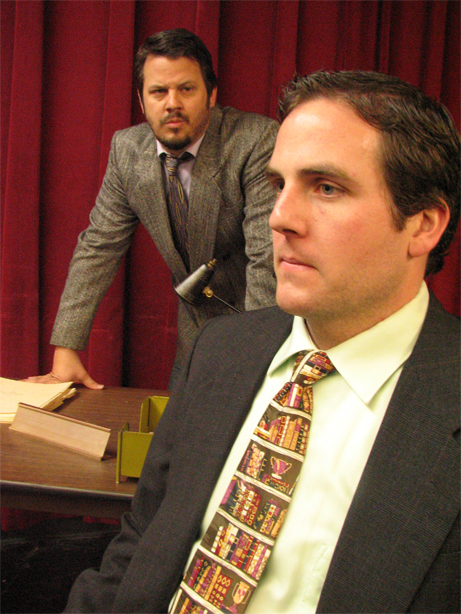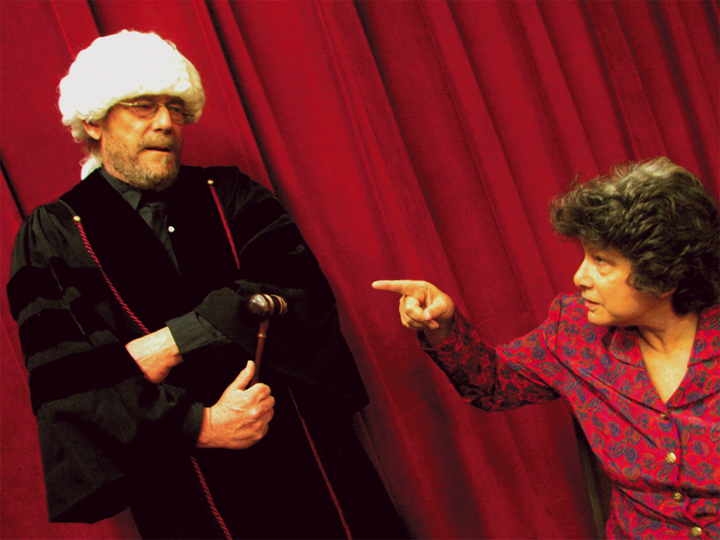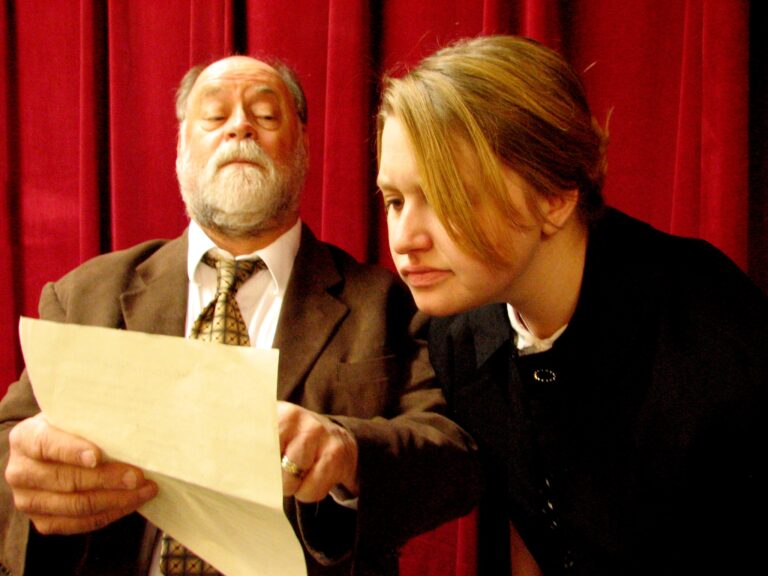The setup for Agatha Christie’s Witness for the Prosecution could just as easily be the backstory for a rousing game of Clue. Emily French has been murdered. The rich but lonely 56-year-old was whacked in the back of the head with a blunt object in the living room of her English townhouse. Young, handsome and broke Leonard Vole is suspected, since he only recently befriended Miss French and yet is the sole beneficiary of her will. But then there’s French’s bitter housekeeper to consider and Vole’s calculating foreign wife, Romaine.As one might suspect (pun totally intended), the object of the play is to figure out who really killed poor Miss French. Rather than take place in a velvet curtain-lined drawing room, Witness is staged as a courtroom drama. It’s up to Sir Wilfrid Robarts to prove to the jury that affable and agitated Mr. Vole is innocent, despite the growing mountain of damning evidence to the contrary. Christie originally wrote Witness as a short story. In play form, the piece runs more than two hours—a heavily expositional two hours. The script could almost work just as well as a radio show, since characters seldom engage in any physical activity more strenuous than pacing. While a couple hours of debate and verbal one-upmanship probably suited mid-20 th century audiences, Witness is likely to be taxing on the attention span of modern viewers. Christie had it right the first time: The story is much livelier in a shorter format. Also, it seems like there’s some unspoken rule in community theater that all plays produced must be British or Irish or at least require actors to affect accents from the United Kingdom. It’s tricky business, since accents are bound to waver, especially with larger casts ( Witness tops out at nearly 20). It would be refreshing to see some newer, possibly even American, plays thrown in. Just saying. All that aside, Albuquerque Little Theatre’s version of the classic whodunit is as polished as one of Miss French’s candlesticks. The set is beautifully crafted, and the crew transforms the stage from courtroom to Sir Robarts’ chambers and back again with grace. While there are some greener cast members, most of the main characters are wonderful to watch. George Williams, who plays Sir Robarts, is particularly sharp, exhibiting excellent timing in his many cross-examinations. Ryan Jason Cook is perfect as the hapless Mr. Vole, who wrings his hands as though he were rubbing a magic lamp, wishing his troubles would disappear. Cyd Schulte fits the role of the beautiful and devious Mrs. Vole. Some tight comedy is found with Neil Faulconbridge and Linda Sklov—who play the justice of the court and Miss French’s housekeeper, respectively.The only character that could use some work is a random Cockney woman who comes to Sir Robarts with evidence. She stomps about the stage in workman’s boots and a misshapen accent, darting her tongue in and out of her mouth like a lizard. It would be nice to see a little more Eliza Doolittle in her and a little less crazy bag lady.If you’re in the mood for a good old-fashioned mystery and have a hankering for British colloquialisms, Witness for the Prosecution is your ticket. The acting is mostly sharp, the design is crisp, and the twists are jolly and good.
Witness for the Prosecution
Runs through Feb. 5Fridays and Saturdays, 8 p.m.Sundays, 2 p.m.Thursday, Feb. 2, 8 p.m. Albuquerque Little Theatre 224 San Pasquale SW Tickets: $10 to $22242-4750, albuquerquelittletheatre.org













